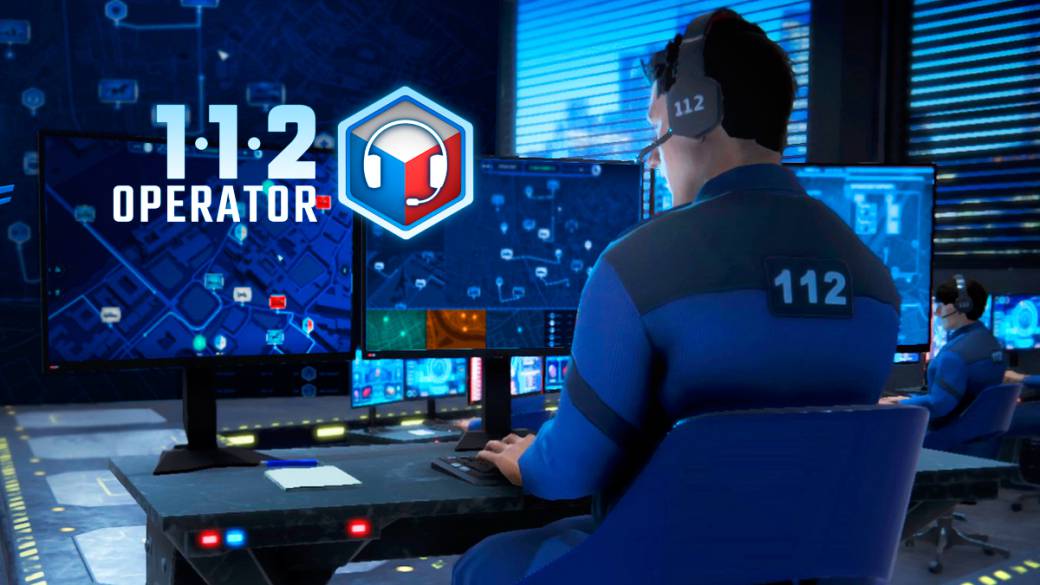
We get behind the emergency phone and analyze 112 Operator, a title halfway between simulator and strategy game for Steam
The fantasy of saving the world or being the heroes is still very present in the video game. No matter how many years pass, that feeling of making a difference in a virtual world stimulates us and encourages us to give our best. Momentarily ignoring the almost identical cousin named 911 Operator and developed by the same company three years ago, proposals like 112 Operator are unusual. An idea that seems to come from serious games, partly playful but partly instructive, to take charge of the phone in an emergency service, answer calls and help save lives.
The title of Jutsu Games studies is actually something of that, the loading screens come with real information and statistical data on the emergency services, and the maps by which we deploy the emergency vehicles are based on locations that exist. Even if we allow it, our departure can be located where we live. It is quite entertaining to hear Anglo-Saxon voices and that the map shows us Spanish municipalities.
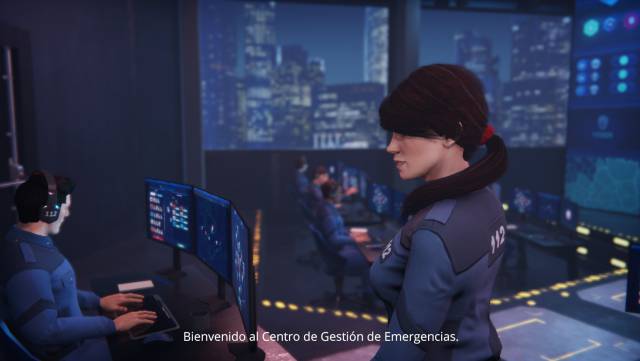
And perhaps this is one of the first interesting talking points regarding this game. It is that tonal range between realistic as a documentation instrument and entertaining as a conventional video game in which 112 Operator moves. Sometimes the former predominates. The video game does not make great filigree when it comes to putting its proposal on the screen. Their menus are sober, their progression is flat. But those times when you want to dominate the latter is a bit shocking. We can go from emergency calls that feel natural to others that seem to be taken from a tabletop telefilm, with actors playing exaggerated scenes and bizarre plots.
Taking calls is one of the game's main mechanics, of course, but it's not the only one. Managing the fleet of police vehicles, ambulances and firefighters is what we will be doing most of the time. At the beginning of the day we strategically distribute the vehicles on the map of the city, and throughout our working day we will send them from one place to another in the city as emergencies occur. Some incidents will only require police intervention, but more complex ones will require a multidisciplinary team.
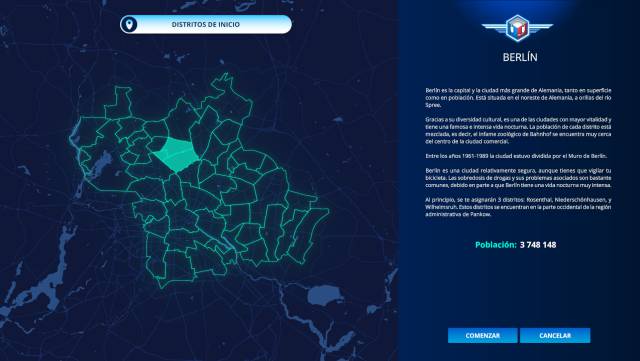
In the main campaign we act as an operator in one of the main European cities while we are learning something new every day. It is not a big change to do this than to play a game on our own, but it is ideal if we want the game to guide us through our (not very complex, to be honest) systems at our first contact.
It is one of these games in which once we have entered its mechanics it is easy to enter "the zone", that centered state in which we are fully involved in what is happening on the screen. The atmosphere is done. Except for some video sequences with 3D modeling entering and leaving the operator room, it is a game that communicates with us through interfaces. We have before us the map of the city, tables with the incidents, the vehicles of the fleet… It does a good job with the sound in general. The soundtrack is simple and takes a backseat, but the sound effects put us squarely in an operating room, with the constant rush of comrades speaking over their microphones and police radios alerting us of their progress.
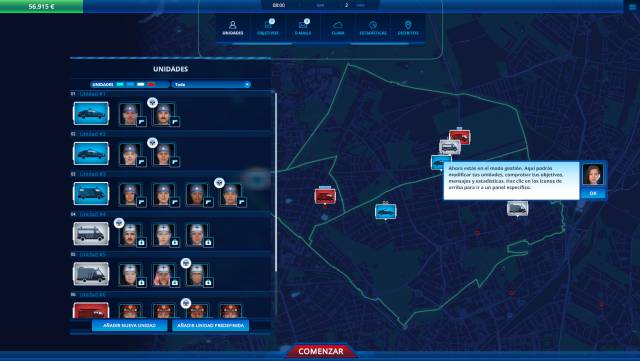
But how do you play? Well, this is actually a very simple loop. The action happens on the map of the territory that we control and on it, incidents will appear throughout our journey. Depending on the type of incident, we will send a specific team to solve it. For speeding or a violent scene in public we will send the police, for fires or certain types of logistical problems such as a man caught in an elevator to the fire department, and for any health related emergency to the ambulance.
Solving these situations is often as simple as sending a vehicle to a place on the map in a few clicks, but that's not where the difficulty of the game lies. The difficulty is in managing a high number of new incidents that are arriving with the resources we have. Often there are no vehicles for everything and we have to prioritize, or the vehicles we have are not the most suitable for a specific incident. A police motorcycle has high speed and is ideal for minor emergencies such as imposing a speeding ticket, but it is useless for transporting handcuffed detainees. Similarly, there are firefighters more prepared for technical incidents than fires, allowing us to get those big trucks full of water ready for the toughest emergencies.
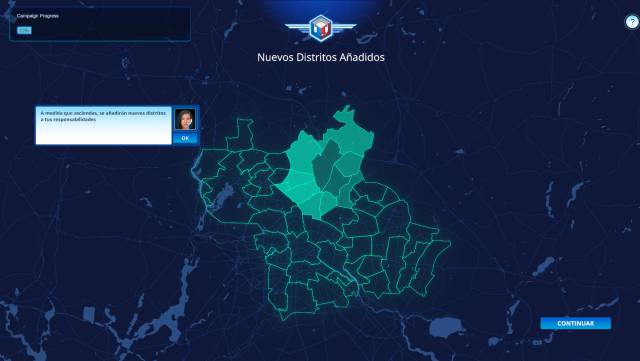
The progression of the game goes through here, actually. Yes, as we go up the service will assign us more districts in which to operate and the action map will be larger, but more interesting than that is the fact that we will be getting money that will be added to our coffers and with which we can buy new vehicles and hire new staff. Here comes a little customization. We can create these new teams more to our liking than we have predefined. Perhaps hiring a good driver to make sure the team gets there quickly, with well-equipped nurses to do their jobs more efficiently.
But when it comes down to it, this customization hardly matters, it must also be said. Vehicles are icons on a map with no identity other than a color scale and a basic image. We have to click on each of them and display a panel to know which unit we are selecting, and in the heat of the moment there is not too much time for it either. Because as much as we are familiar with the map routes, or by more personnel and vehicles that we hire, the game always transmits to us that feeling that we did not reach everything, that there are incidents that must be prioritized, that there are sections of the map to the ones that certain vehicles simply can't get to on time without leaving their area unprotected. And that without taking into account that at the moment of truth, where we have to measure up by answering the phone.
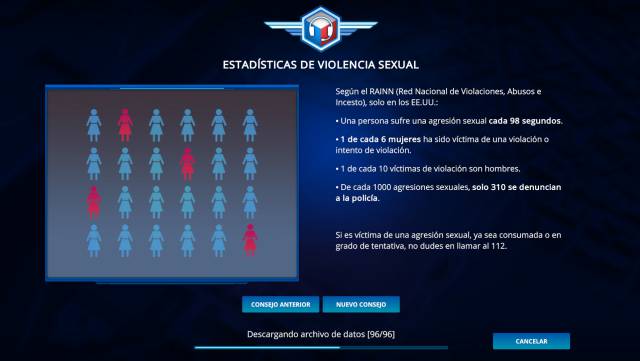
It is curious because the calls, which could be the epicenter of the experience, become a mechanic more than 112 Operator. Once the calls are accepted, they are another incident that adds to the map and that we will eventually lose sight of when we solve. Solving these calls is the most exciting interactions in the entire game, as it could not be otherwise. They break into our working day of mobilizing vehicles to their respective incidents with more delicate situations that require more urgency and a human touch in their resolutions.
Perhaps a citizen's partner has become dizzy inside his own home and is now unconscious. Perhaps a witness reports a particularly dangerous fire in a city building. Or a man is stuck in a train level crossing and calls us terrified without knowing what to do. In all these situations we have the power to decide how to respond within a series of predetermined options that will guide the conversation in a specific direction. It is less about knowing technical procedures of the emergency service (although sometimes we will have to explain how to do an RCM) and more about using common sense to guide these poor citizens and that they have the best possible end.
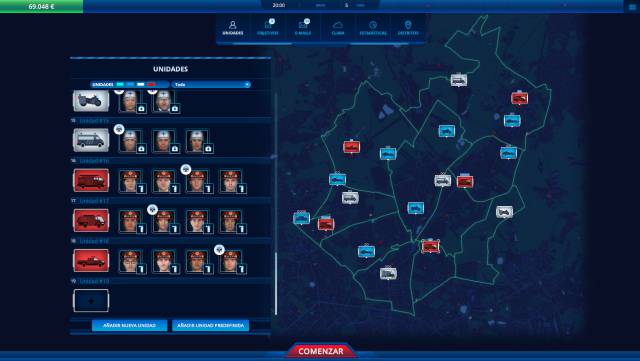
There are especially delicate situations in which the most sensible thing will be to wait until the emergency services that we have sent arrive, and there are others in which our words are essential to save the person, so there is a weight behind these conversations. . Not all calls will be life or death. There will also be prank calls that we will have to know how to identify and ignore. Sending police teams to school any kid who calls us saying there is a bomb in their school may seem sensible at first, but it will end up with some of our team wasting time when it might be necessary elsewhere.
These stories begin and end on the phone line, and this ends up acting a bit detrimental to the title. Managing the mobilizations of the emergency teams is fun and addictive to a certain extent, but it takes a bigger hook to catch us in the long term. This gap is not occupied by those dozens of conversations we have. Ramalazos of humanity that when hanging become another icon on the map, difficult to identify and follow the case. With all his good intentions to help save lives from a title like this, at the end of the day it is difficult to identify 112 Operator with more than a cold experience that, although correct as a video game, does not manage to convey that feeling that we are making a difference .
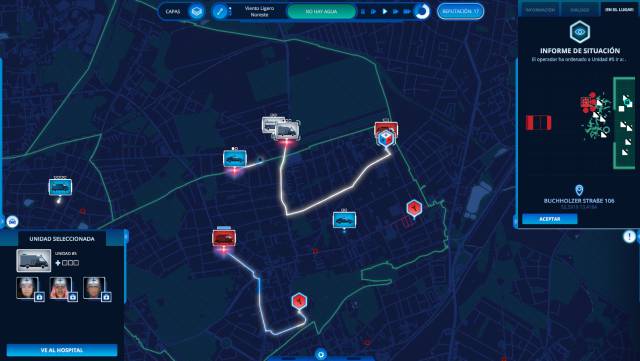
CONCLUSION
112 Operator is a correct game with significant sensitivity. Perhaps it is daring to say that it has documentary value, but it certainly brings us closer to real processes of how emergency services work and give us a leading role in them. The game works halfway as a management game, giving us limited and somewhat restricted possibilities within discrete systems. But neither does it shine as an experience of narrative or dramatic power, despite all the human stories that are told to us. It is between those two worlds that the game operates. Managing emergency teams across real maps is satisfying enough to want to make several games, and answering emergency calls is a welcome break from the formula that thus provides some of the best moments in the game, even if they end up being superficial in last instance.
THE BEST
- Many of the calls sound organic and create stressful situations
- The mechanics of managing transport is well resolved and addictive
WORST
- There is little depth to your proposal
- It is made of fewer voices in different languages depending on the country to provide fidelity
Right
It is not the latest or most original, nor does it have the best execution, but it can be fun if you like the genre. Good, but upgradeable.
